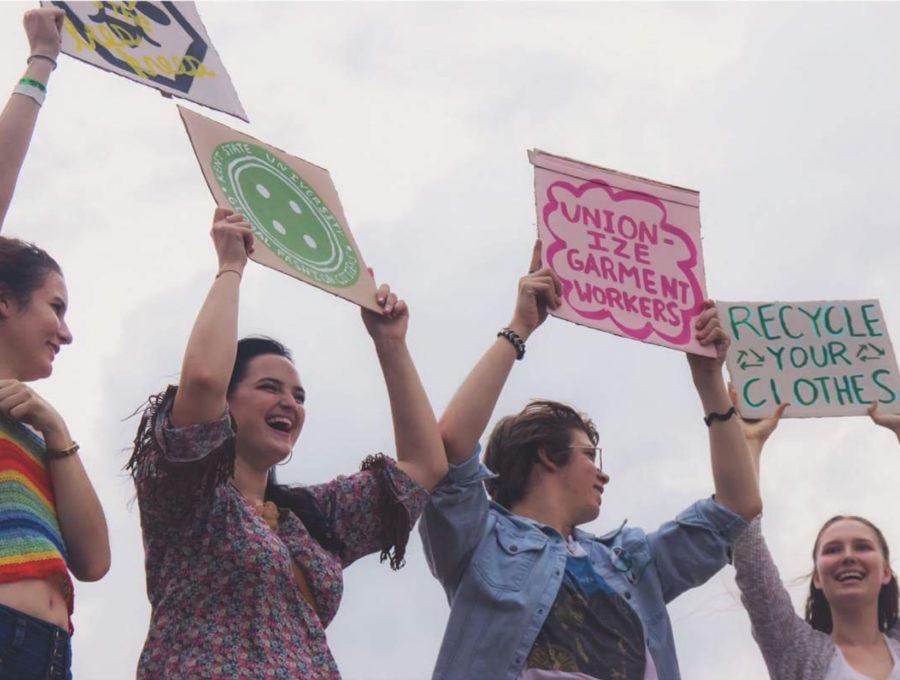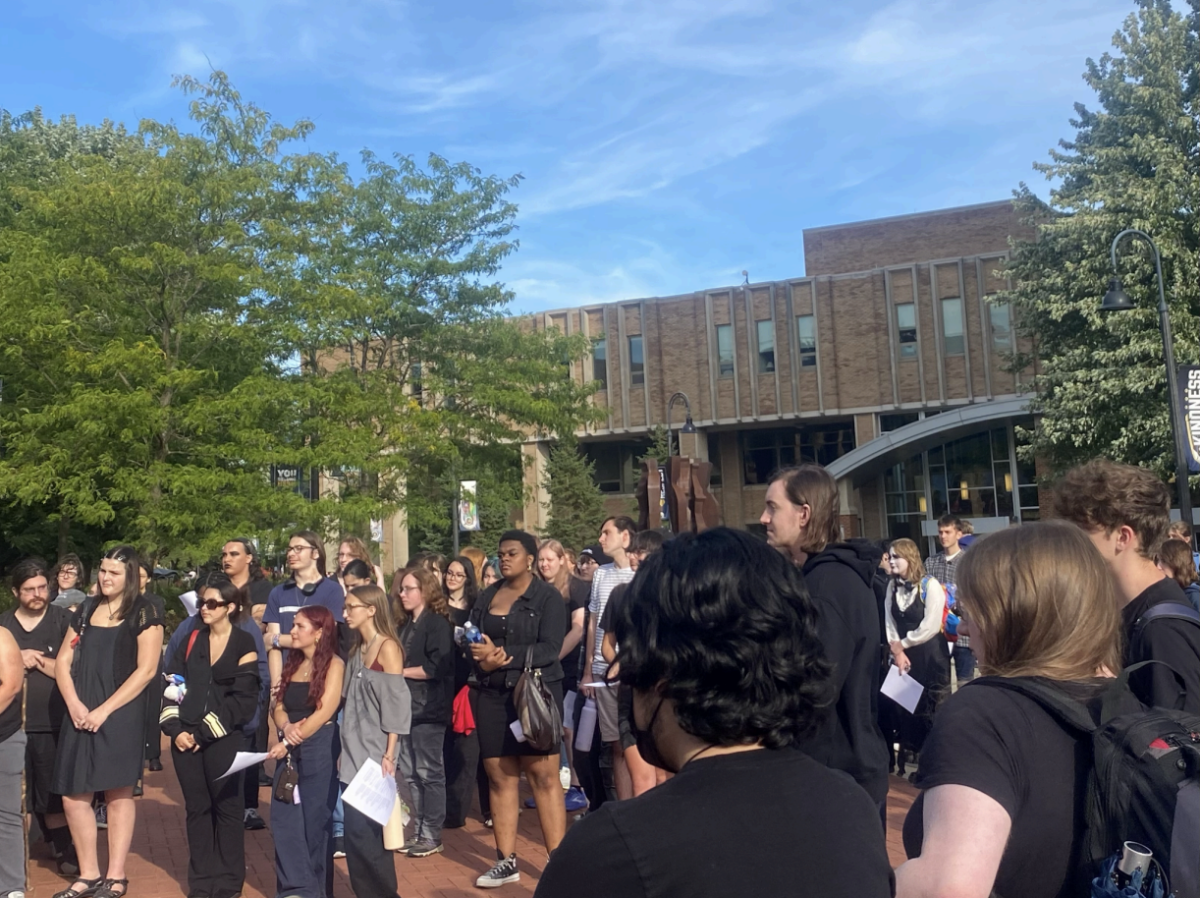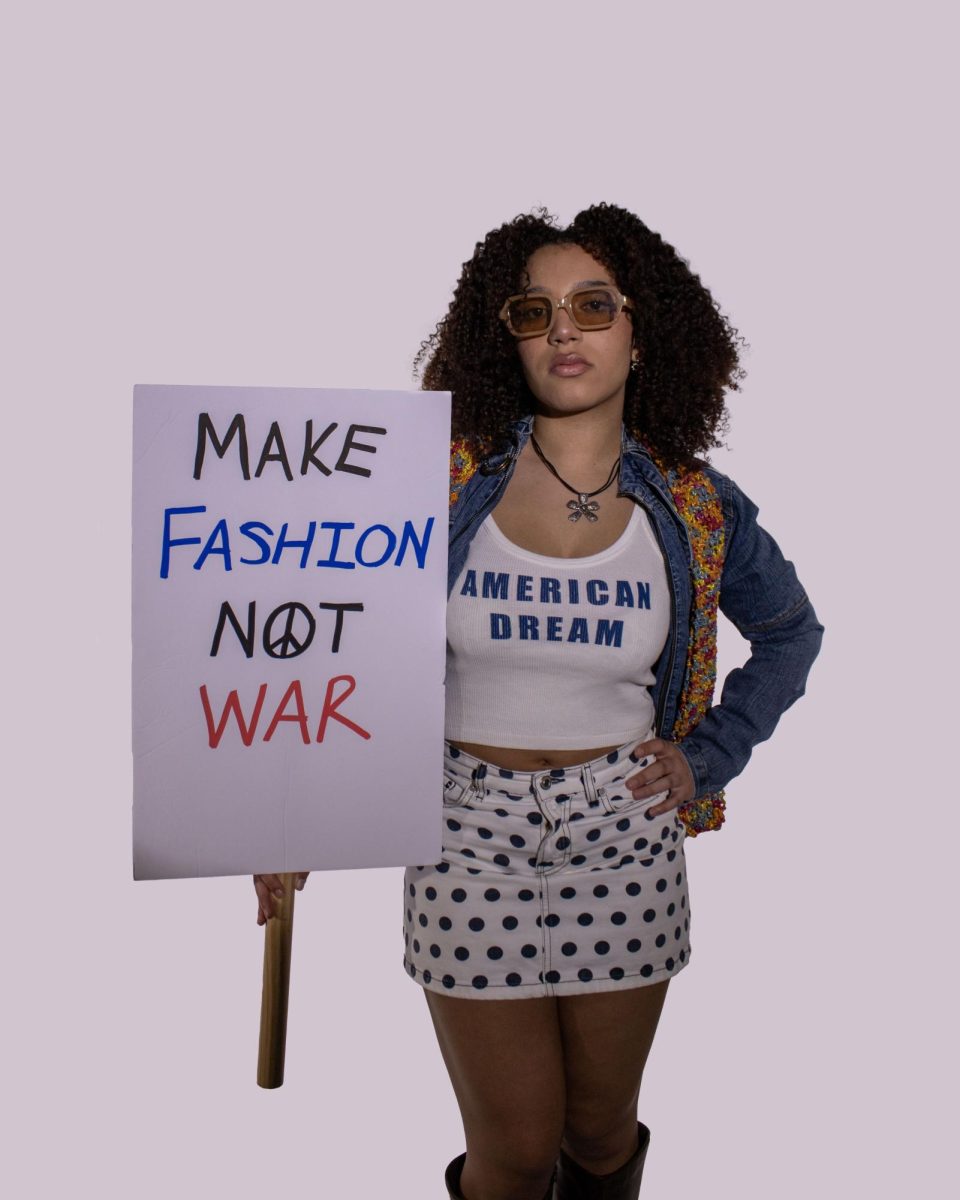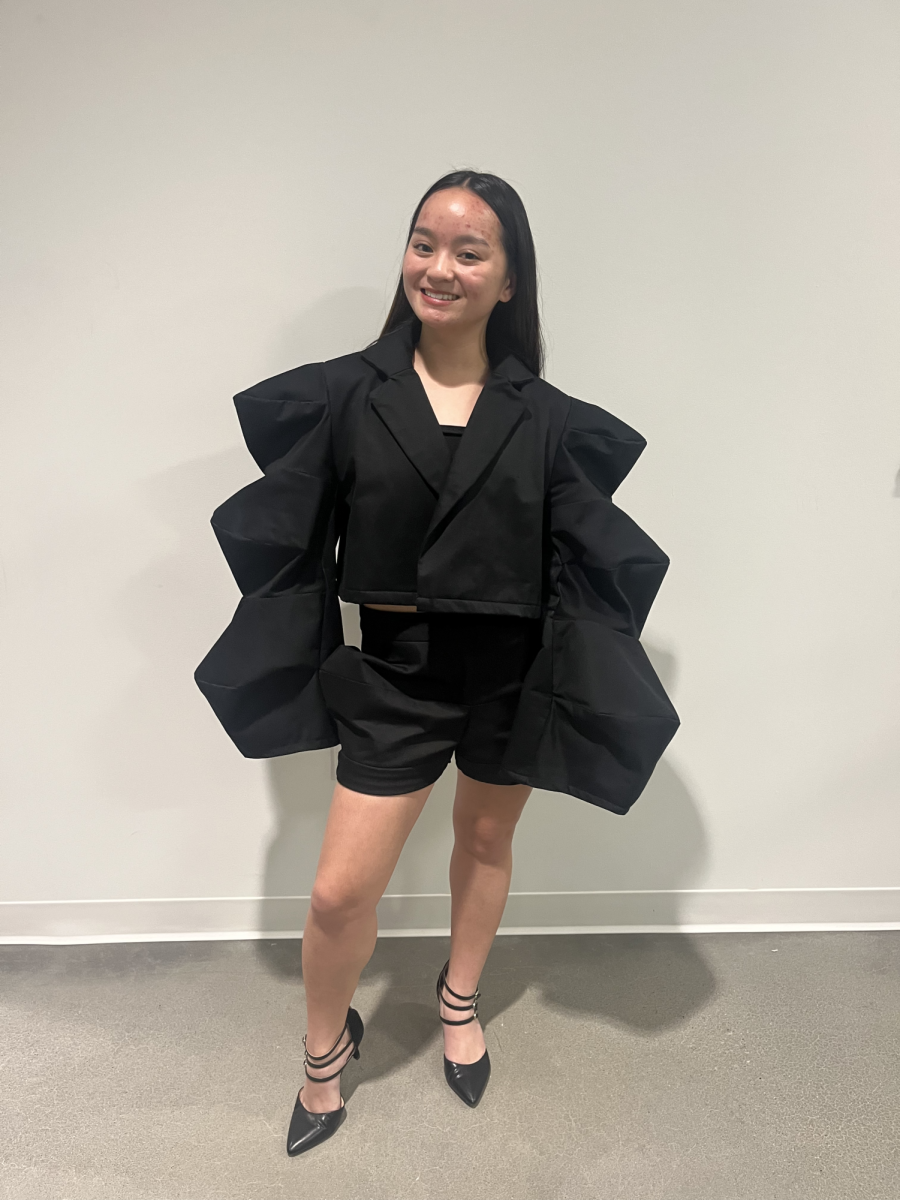If you ever find yourself amazed at how inexpensive clothes are at fast-fashion retailers, it would be worth your time to consider the ethical costs of the apparel industry. The apparel industry trails only oil corporations as the world’s second-largest polluter, according to The Washington Post Co.. Not only is waste an issue in the fashion industry, but human rights are also threatened in the making of clothing. In 2015, a documentary called “The True Cost” revealed these flaws of the fashion industry and sparked a conversation that’s continued today.
Kelly Cunningham decided to participate in this dialog. In December of 2015, Cunningham began an organization on campus called Global Fashion Citizens (GFC). GFC focuses on environmental awareness and human rights advocacy within the fashion industry.
“The causes of this waste and pollution range anywhere from consumers purchasing clothing at the same rate as one consumes fast food, creating more and more waste every day,” Cunningham says. “The blame can also be put on the brands [that] choose not to produce garments in a closed-loop, cradle-to-cradle business model.”
This closed-loop that Cunningham mentions involves utilizing recyclable, sustainable practices and materials throughout the production process. The United Nations Global Compact explains the goal is to achieve a production process that comes full circle, eliminating waste from the process. Companies still have a ways to go with the implementation of this approach, but it should increase in popularity as time goes on.
Of course, many consumers wonder why they should be concerned about sustainability. Cunningham has an answer for that.
“It’s important to be aware of sustainability in fashion because it’s important to be aware—period,” Cunningham says. “Why would you want to live your life in blissful ignorance? If your hard-earned money is going towards a system that presses workers, rapes the earth of its natural resources and will eventually break, why would you not want to be aware of that?”
Environmental consciousness is only part of the solution. Action must take place, too. There are many ways to alter wasteful habits and develop new, environmentally-friendly ones. Cunningham says GFC makes a difference primarily through educating members about how to achieve a sustainable lifestyle.
“Wash your clothing correctly, fix and mend your clothing, buy from sustainable brands,” she says. “Everyone in the Global Fashion Citizens recycles, donates and thrifts.”
The club is organizing a “fash-mob” April 20 at 7 p.m. to raise awareness about sustainability in fashion. The event will take place at Risman Plaza as students gather for the annual FlashFest concert.
GFC member and fash-mob organizer Maria Ramsperger says the fash-mob is inspired by the creators of “The True Cost” documentary who first hosted a similar event in reaction to the Rana Plaza disaster.
Over a thousand workers at Rana Plaza died as a result of building safety problems that ultimately lead to destruction, according to National Public Radio. The collapse of this garment factory in Bangladesh was a turning point for worker regulations within the garment-making world. This tragedy caused people to begin questioning who makes their clothes and where they come from.
“At Kent State, our fash mobs try to call attention to the necessity of promoting sustainability within fashion,” Ramsperger says. “All of the designs and styling done for the fash-mob should be somehow sustainable.”
Ramsperger says designers and stylists have total creative freedom but are encouraged to implement zero waste, recycled materials and/or thrifted garments into their looks. The theme for this year is ‘Urban Renaissance.’
If you are interested in participating in the fash-mob, there are opportunities to model, design, style and simply attend the event. For more information to get involved, email [email protected].


















